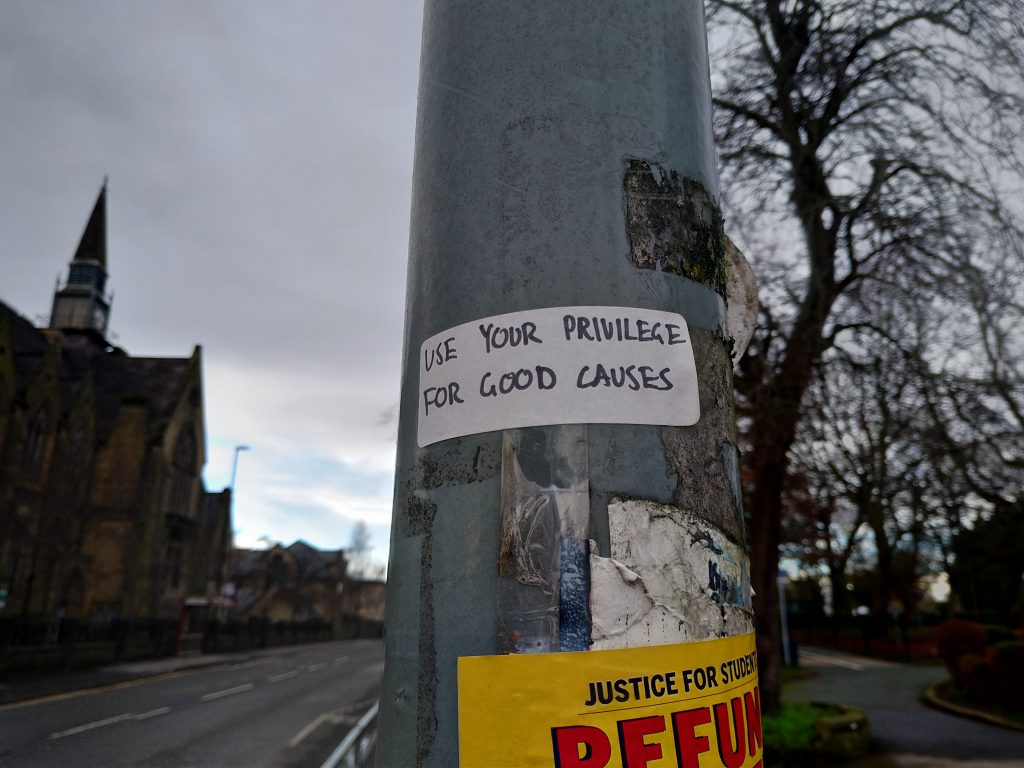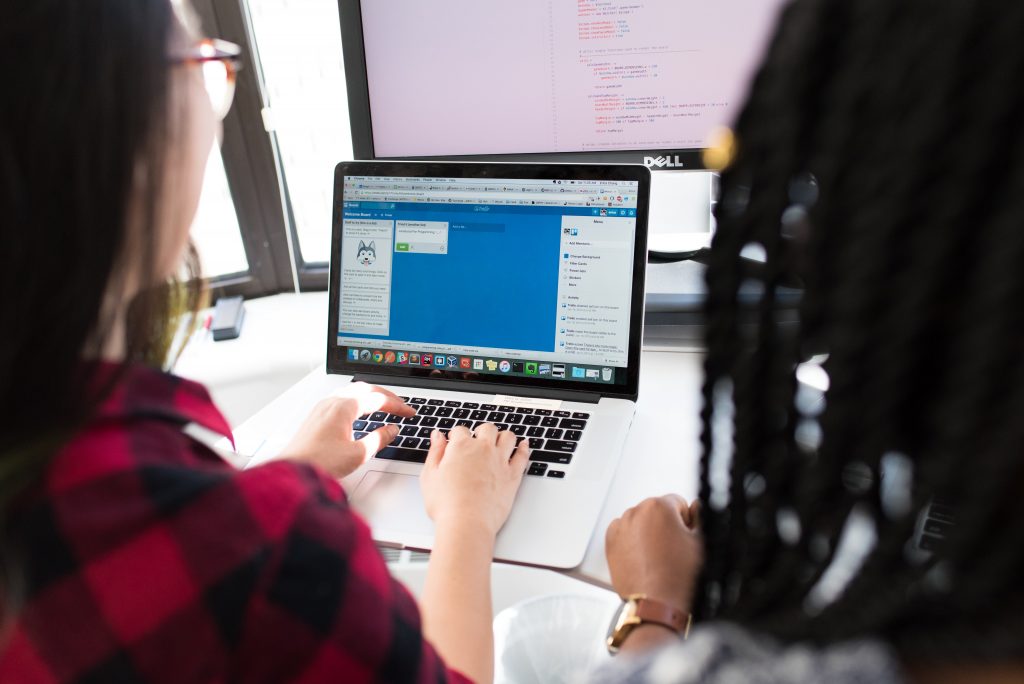I am a white, cis, able bodied woman living in a wealthy country in Europe – in my teenage years I didn’t really give those facts a lot of thought, simply because it was my everyday reality and I didn’t question the system I was living in. Ten years later, in my mid to late twenties I have become much more aware of what these attributes mean in terms of my placement in society. What defines me as a person, growing up in a traditional yet still progressive country as Austria, makes me privileged. And even though women or those who identify as such are facing disadvantages in numerous areas of society in comparison to our male counterparts, I had to come to the realisation that I am still part of the privileged top field of society’s questionable pyramid.
Contents
Privilege Defines Performance
Privilege is a term that thankfully has become much more prominent in the last couple of years and has been the topic of discussions all over the world. While inequalities regarding gender and race have recently finally found their way into mainstream media as people have started to publicly address the issue, fight for their rights and demand to be treated equally, privilege actually goes even deeper than that. Something I did not realise until I watched Tatiana Mac’s talk about how privilege defines performance at PerfMatters Conference in 2019 – a talk that made me rethink my entire perception of the term yet again.
Mac is a renowned engineer, writer and speaker who has made it their mission to educate people about privilege not only in every day life but also In the realm of technology. She has created Devs of Colour, a database that prioritises finding black and brown talents through a thoughtful search algorithm. Mac, whose pronouns are they/she, is Asian American, which means they have experienced the negative side effects of privilege as well.
The white, supremacist, capitalist patriarchy that is undeniably present in the Western world is not random but systemised, says Mac. The US for example was founded on this principle, treasuring until this very day. It’s a system which protects white, able bodied, heterosexual, cis males who are neurotypical – in order to protect their power. Although all those remarks Mac makes in the talk about the dominance of the people fitting the attributes mentioned above, they also remind the audience about the privilege everyone present has. „At this conference, we are all privileged. To be on high end devices and to be present at this conference is a privilege in itself.“ A remark that sparked a process of rethinking the term „privilege“ within me.

Photo by Ava W. Burton on Unsplash
What is Privilege?
Mac goes on explaining a system called the privilege block, the more blocks you tick, the higher is your own privilege. But even though one might be able to categorise themselves, each block still has multiple levels that need to be considered. Because even though Mac views themselves as able bodied, they still experience problems in daily life as they are very petite.
This was an approach to privilege that hadn’t crossed my mind so far but immediately caught me off guard as I myself am rather small and have had troubles reaching shelves in supermarkets or have had automatic doors close on me as I was too small to trigger the sensor – never would I have connected those issues to the preface of tall people’s privilege. „Our privileges are invisible to us“, Mac stated in her talk. I agree to some extent, although I believe the more the issue of privilege is addressed the more aware we can become of the advantages we have, just by the attributes we were given at birth and had no choice in – the families we are born into, our skin colour, medical conditions and others.

Photo by Christina @ wocintechchat.com on Unsplash
75 Percent of Websites are not Accessible
Mac figured that privilege itself is harmless, the combination with power, ignorance and bias is what makes it dangerous. In order to make the take on privilege more graspable, Mac wraps the topic in the concept of a plugin demanding multiple steps to be installed. Step two would be „Admitting your bias“. From a technological view point, websites already grant an insight into the privilege of its creators. 75 percent of the websites Mac analysed failed in basic fields such as providing contrasts that could be read by visually impaired people as well. Analysing alt text and links delivered the same result, alt text was missing in numerous places, many links were found empty. The reason for that is that, as mentioned above, websites are centred around able-bodied, neurotypical people.
Another interesting aspect Mac mentioned was the fact that major airlines always list male first, something I had never noticed before but haven’t been able to unsee ever since I watched Mac’s talk.
Accessibility on the Web helps everyone
In lessening our own ignorance, we can have a positive impact on our privilege driven society. Consuming media that doesn’t centre our individual experiences already helps with that. „Not everything is made for our understanding“, Mac says. Accessibility on the web helps everyone.
Privilege is not a grid, it is a wall. The more privilege one has, the easier it is to overcome it.
Tatiana Mac
I have read multiple books by authors, male and female, who have been vocal about privilege, racism and inequality, trying to educate myself further about the topic as I see it as my responsibility as a journalist to not only be able to understand but also be able to support and maybe implement changes by adapting my own behaviour. It is hard to admit to yourself that your own privilege you’ve been unconsciously living in your entire life affects the way you think and experience things without ever once paying attention to the fact that the same mundane task or life step could be an impossible challenge for someone with a different educational, religious or national background.
Reni Eddo-Lodge and Melisa Erkurt with their respective books „Why I am no longer talking to white people about race“ and „Generation Haram“ have made me painfully aware of how deeply embedded racism and privilege is into our Western culture and Tatiana Mac’s talk has just deepened my urge to change that, even if only on a small scale.
What I Learned and Why We Never Stop Learning
While I believe some parts of privilege such as racism and gender inequalities are in a more urgent need of change than others, Mac’s talk has also taught me that everyone is dealing with some kind of disadvantage created by the „norms of society“ and by being aware of our individual level of privilege, it can help us understand and counteract the negative effects.
I have been severely short sighted since age six and can’t remember how it was to be able to see anything clear without contacts or glasses that is more than two centimetres away from my face. While I am visibly able bodied for the outside world, I wouldn’t be able to live a „normal“ life without the help of science and medical technology. And yet again I find myself In a position of privilege as I can afford buying contacts and might even be able to invest in an eye operation one day – many people don’t have that opportunity.
Lacking Awareness
Furthermore, the fact that privilege goes as deep as affecting the way websites are created startled me as this had been something that never came to my mind. With 75 percent of web pages missing basic accessibility functions this is something that can’t just be ignored and brushed of as coincidental. Website creators and designers are apparently lacking awareness in terms of adapting webpages to people’s special needs, considering those with impairments and other issues that might affect their ability to consume content.. Regarding alt text I have to scold myself as well as I have had times when I forgot adding alt text to pictures.
There is so much depth and so many levels of privilege that make it difficult to grasp, but what is important is that we don’t lose sight of the systemised oppression that is embedded in our society. And while we might not be able to change the world by tomorrow, small steps are better than none, even if it’s just adding alt text to pictures on the web.
